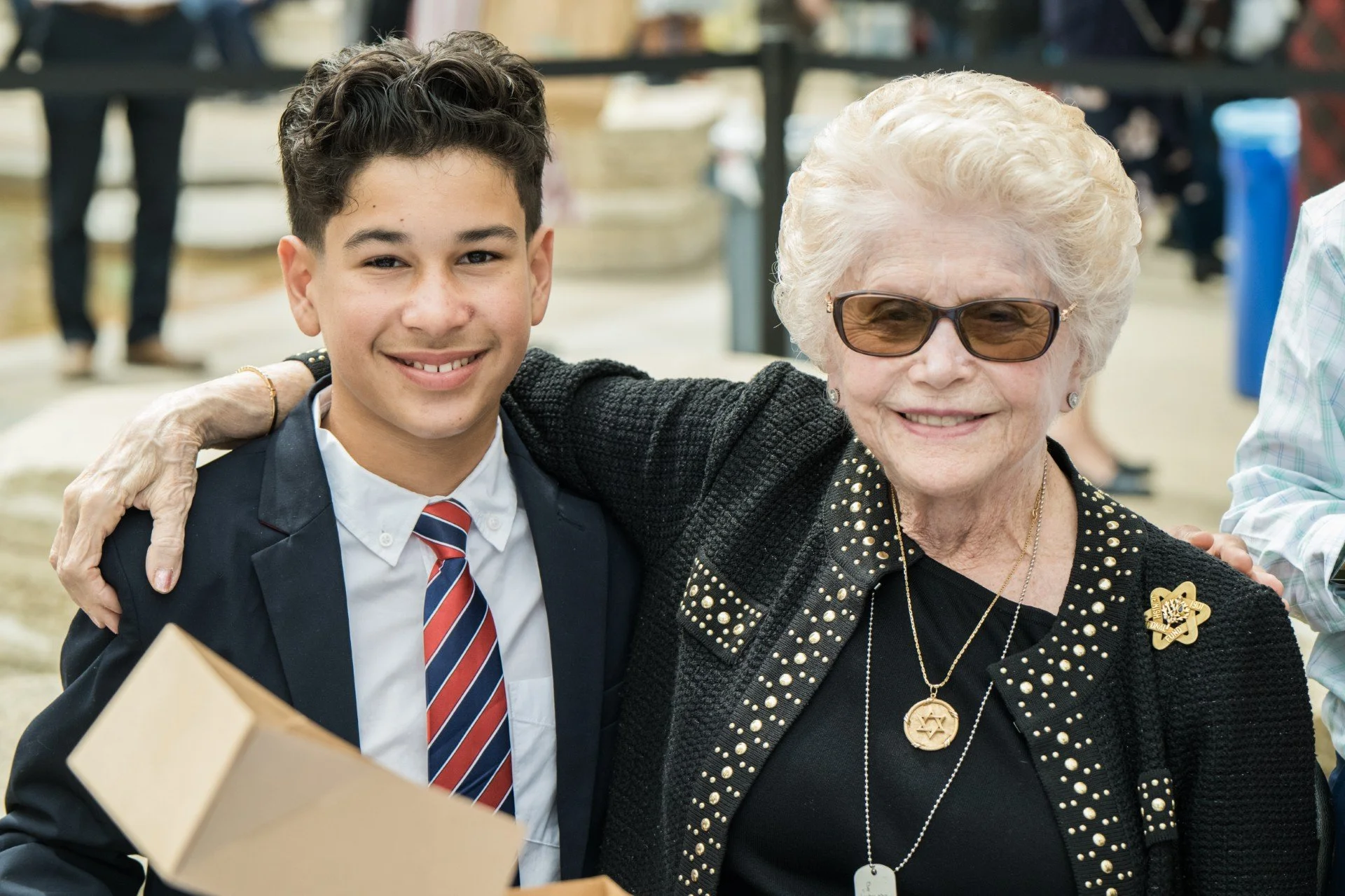Chapman University celebrates its 25th annual Holocaust Art, Writing Contest
The contest, alongside Chapman’s Holocaust Studies course, allows students all across the country to remember a deeply tragic event in global history. Photos by Jeanine Hill, photos courtesy of the Barry and Phyllis Rodgers Center for Holocaust Education
Last month, the Barry and Phyllis Rodgers Center for Holocaust Education hosted the award ceremony for the 25th annual Holocaust Art and Writing Contest for various middle and high schools across the country.
The ceremony saw students’ pieces in prose, poetry, art and film be recognized for their creativity as they responded to this year’s theme of “Answering the Call of Memory: Choosing to Act.”
First-place winners in the high school category were Jiyun Woo in art, Ariella Pelton in film, Mercy Uchegbu in poetry and Norah Chowdhury in prose. For middle schools, the first-place winners were Faith Pelz in art, Lucas Menendez in film, Hannah Fung in poetry and Isabella Tan in prose.
“Our goal was to go beyond the ‘facts’ of the Holocaust to build connections between individual survivor experiences — the stories of their experiences before, during and after the Holocaust — and middle and high school students,” said Marilyn Harran, the director of the Rodgers Center for Holocaust Education. “Some students have described the contest as ‘life-changing,’ and some students have even remained in touch with their survivors for years after.”
The memory of the Holocaust remains ever-important as the years go on, especially as more and more Holocaust survivors pass on. Memory is key to Holocaust education, especially as increasing numbers of students begin to doubt the existence of the Holocaust to begin with. Through these contests, the testimonies and memories of these survivors and their harrowing experiences remain alive through a younger generation.
“The contest started as a local one with just a few schools participating and has grown to become national and even international. Our hope is that the schools who have been participants for several years, or even a decade or more, will continue to participate and that students will come to see history, whether of the Holocaust or other events, as ‘story,’ as something individual and personal that has meaning for their lives.”
One of the key aspects of the contest is the use of survivor testimonies as a prompt for students. Hearing the experiences of Holocaust survivors allows their stories to be humanized, and, more importantly, allows a newer generation to be inspired to carry on ideals of justice and human rights, according to Harran.
Past themes in prior contests tend to emphasize the importance of memory as well, interlinking remembrance with future action. Examples of past themes include “Telling it Forward: Making Memory Matter,” “Voices from Yesterday: Letters for Tomorrow” and “Conscience and Community: Choices of Courage.”
“I’ve been with the contest since its inception and have had the great privilege of getting to know many Holocaust survivors and their families,” said Jessica MyLymuk, the associate director for the Rodgers Center for Holocaust Education. “Though many of the survivors who used to attend the awards ceremony are no longer with us, we keep their memory alive by bringing their stories to middle and high school students across the country and internationally.”
Data provided by MyLymuk shows that the contest in 2024 reached 234 registered schools, with 161 submitting a maximum of three entries. The entries come from an estimated 7,000 to 8,000 high school and middle school participants. Thirty-three states and 10 countries were represented in the contest this year, but in the 25 years of the contest, MyLymuk says that 45 states and 25 countries have been reached, alongside at least 150,000 students and 2,000 educators.
“Educators who bring the contest to their classrooms also bring the opportunity to delve deeper into the humanity that comprises their disciplines, whether that’s history and social science, language arts or visual arts and media,” MyLymuk said.
“Students who listen to survivors bridge a gap created by time and connect with someone who experienced the events of the Holocaust, making this history personal. And Holocaust survivors and their families who attend the awards ceremony or view the winning entries know their memories are being preserved in future generations.”
Another way that Chapman encourages Holocaust education is through its Holocaust Studies minor.
While the minor is unrelated to the contest, it is seen as complimentary by some of the judges and staff of the Rodgers Center for Holocaust Education, furthering the ability for people to learn and remember the Holocaust.
“I mean, I love it. I got to be a part of it as a student here at Chapman. I judged when I was a student, and I still judge to this day,” said Natalie Figueroa, an assistant for Chapman’s history department and a judge for the contest. “I think it’s really amazing, seeing the different organizations and people who come together who help judge and put the ceremony on.”
Before graduating in 2018, Figueroa studied under Harran and eventually self-designed a Holocaust Studies major. A self-designed major (or minor) is something she expressed enjoyment of, especially since it allowed her to work closely with staff at the Rodgers Center for Holocaust Education while also allowing her to focus on her studies.
“I think the biggest (takeaway) is keeping memory alive. For a lot of these students, I don’t know how much they’re being taught about the Holocaust in middle school and high school, especially as history expands. I know when I was in school, it was a paragraph in our textbooks. But, the Rodgers Center does a really good job at shifting the theme each year so it stays on par with that.”

